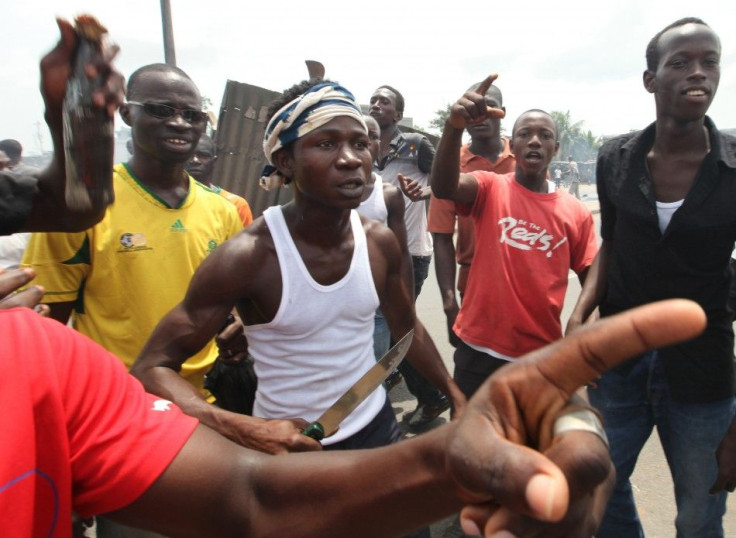Six women shot and killed in Ivory Coast protest

The post-election crisis in Cote d'Ivoire's (Ivory Coast) has led to more tragic violence.
Security forces loyal to Laurent Gbagbo, the country’s disputed president, have shot and killed at least six women who were attending a rally in support of his rival, Alassane Ouattara.
According to the Agence France Presse, the killings occurred after hundreds of women had gathered in the capital city of Abidjan to demand Gbagbo’s removal with shouts of Gbagbo, get out! and Alassane for president.”
The U.S. strongly condemned the killings.
The moral bankruptcy of Laurent Gbagbo is evident as his security forces killed women protesters and his country runs out of resources, Philip Crowley, the US State Department spokesman said.
The United Nations estimates that more than 200,000 people have left Abobo (a pro-Ouattara district in the northern part of Abidjan) following days of frantic fighting between policemen loyal to Gbagbo and rebel soldiers who support Ouattara.
Men in uniform drove up and started shooting randomly, Idrissa Diarrassouba, an Abobo resident told Reuters.
The UN's refugee agency has expressed its grave concern about the situation, citing reports of many dead bodies, buses burned and shops looted, and of young militiamen attacking people inside their homes.
In addition, Gbagbo has reportedly cut power and water to the country’s north, an act that could trigger a humanitarian crisis.
The crisis dates back to November when Outtara apparently beat Gbagbo in the presidential election.
The UN and other global bodies recognize Outtara as the rightful head of state of Ivory Coast, but Gbagbo (the incumbent) refused to concede.
Once a bastion of peace and prosperity, Ivory Coast has descended into chaos over the past decade. A rebellion in 2002 divided the country into the rebellious north and the pro-government south.
Last year’s presidential election was the first in ten years and was seen as a way to complete the long-running peace process.
However, the disputed election and Gbagbo’s intransigence has led to sanctions by western nations and warnings from the UN of another civil war in the country, which is the world’s pre-eminent cocoa producer.
Hundreds of people have already died in the political standoff, thousands of others have fled to Liberia.
The UN has called for Gbagbo to step down; and many delegations from other African countries have failed to convince him to give up his claim to the presidency. Gbagbo has even rejected offers from amnesty and exile abroad.
Meanwhile, France, which has significant economic interests in the county, has urged its 15.000 citizens in Ivory Coast to leave.
© Copyright IBTimes 2024. All rights reserved.











